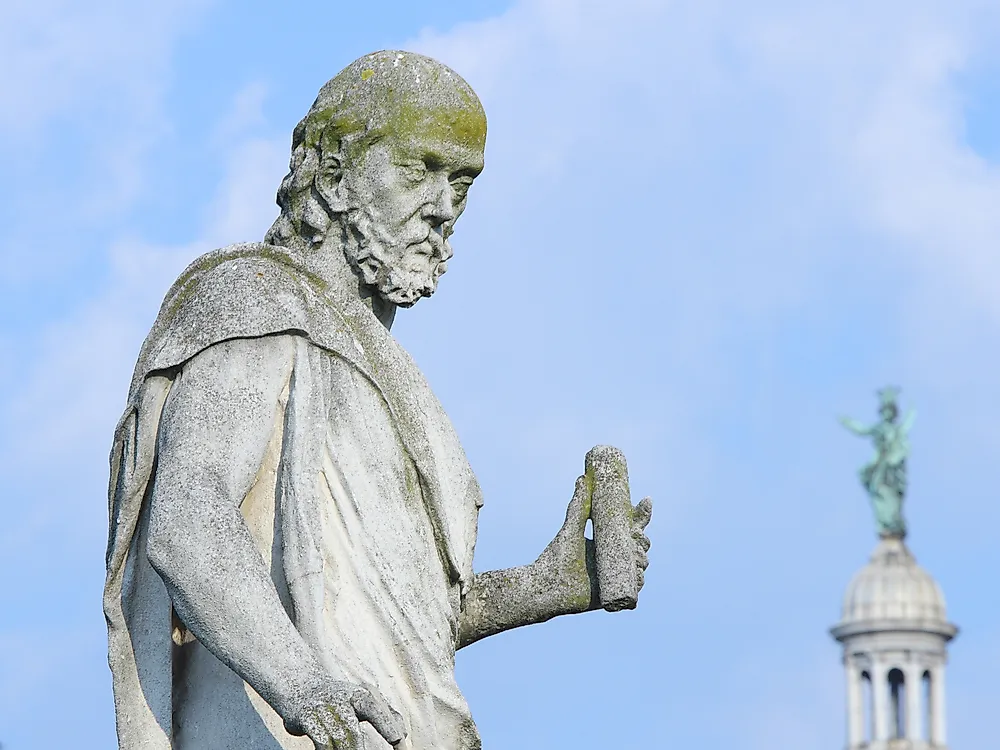Galileo Galilei - Figures Throughout History

Galileo Galilei was an Italian scholar and scientist who made groundbreaking observations that laid the foundation for modern astronomy and physics. He excelled in many fields such as astronomy, mathematics, painting, philosophy, engineering, and even lute playing. Galileo made a pioneering observation with long lasting implications to the study of physics, and his discoveries were instrumental in discovering the present-day facts of nature. However, Galileo's scientific advocacy caused trouble with the Church and was accused twice of heresy for his beliefs of a sun-centered solar system.
5. Early Life
Galileo was born to Giulia née Ammannati and Vincenzo Galilei on February 15, 1564, in Pisa, Italy. His father was an accomplished music theorist, lutenist, and composer. Galileo took after his father and became an accomplished lutenist. Of Galileo's five siblings, three of them survived infancy. The family relocated to Florence leaving an eight-year-old Galileo with Jacopo Borghini for two years. Galileo subsequently started formal education at the Camaldoese monastery in Vallombrosa Abbey.
4. Career
As a young man, Galileo considered the priesthood, but he began studying a medical degree at the University of Pisa upon his father's persuasion. While at the university, Galileo discovered his passion for mathematics and persuaded his father to make the switch to mathematics and natural philosophy. However, he left the University of Pisa in 1585 without his degree due to financial constraints. Galileo continued to learn mathematics, and he worked in minor teaching jobs to support himself. In 1586, he got an instructor's position in the Accademia Delle Arti del Disegno in Florence after studying fine art. He began to study objects in motion, publishing ‘The Little Balance' which in 1589 earned him a post to teach at the University of Pisa. Galileo's father passed away in 1591, leaving him to take care of his younger brother, Michelagnolo. Galileo taught mechanics, geometry, and astronomy at the University of Padua from 1592 to 1610. He made important discoveries in practical applied and pure fundamental science during this period.
3. Major Contributions
In 1609, Galileo was informed of the existence of the spyglass made in Holland. Using his knowledge of mathematics, he built a superior telescope which allowed a magnification of eight or nine from the mere three in his day. With the help of the telescope, Galileo discovered the craters on the moon, sunspots, the phases of Venus, and Jupiter's four largest moons. His contributions to astronomy earned him the position of court mathematician in Florence. Galileo formulated the law of falling bodies in physics which stipulates that objects, regardless of shape or weight, fall at the same speed. He also studied the concept of inertia which formed the basis for one of the laws of motion developed by Isaac Newton.
2. Challenges
Galileo's support of the Copernican theory saw him accused of heresy in 1614. The theory suggested that the sun was at the center of the solar system which contradicted the Aristotelian geocentric view which stated that it was the earth and not the sun that occupied the center of the solar system. In 1616, the Church forbade Galileo from propagating the Copernican theory. He published a book in 1632 named ‘Dialogue Concerning the Two Chief World Systems' in which two men discussed the Copernican theory. This publication earned him a conviction of life imprisonment which was subsequently reduced to permanent house arrest. Galileo was further forced to retract his support for the theory.
1. Death and Legacy
Galileo Galilei passed away on January 8, 1642 in Arcetri after succumbing to heart palpitations and a fever. The Church warmed up to his ideas after his death, and in 1758, the ban on publications supporting the Copernican theory was lifted. Several Popes acknowledged Galileo's work in the 20th century. In 1992, Pope John Paul II apologized for how Galileo's affair was handled. Galileo contributed to the understanding of the universe and played a significant role in the scientific revolution. Galileo has been declared ‘the father of modern science.'











